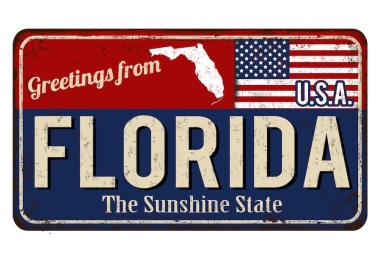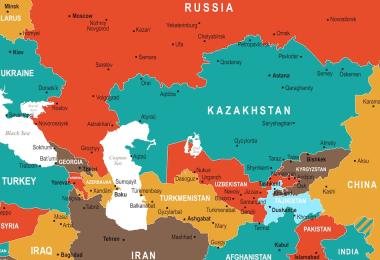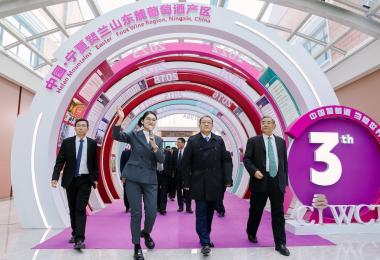In 1999, the artist and engineer Andrey Dellos decided to “bring culture back to Russians”. The result was Café Pushkin. In Moscow, where restaurants open and close virtually every day, the 19 years of history make it one of the oldest dining venues in town. It’s hard to miss: glowing with electrified garlands, it is located some 10 minutes walk from the Kremlin’s walls.
Named for the Russian poet Alexander Pushkin, the concept is based on the song “Nathalie” by Gilbert Bécaud, in which he brings a girl to drink chocolate at Café Pushkin. All the French tourists who subsequently went looking for it were out of luck because there was no Café Pushkin, until Dellos created it. The luxurious, bookish interior was based on his own sketches and the restaurant was rushed into being so it could open in time for Pushkin’s 200th anniversary.
Today there are eight standalone restaurants in the Dellos Group scattered across Moscow — including the luxury restaurant Turandot — as well as a network of 40 fast-dining restaurants called Mu-Mu. There’s also a patisserie bearing the Pushkin name just next door.
As of December 2017, Dellos is also bringing Russian culture to the French: a Café Pouchkine has opened in Paris’s eight arondissement, run by Ladurée ex-director Stéphane Jitiaux, who’s backed by the Moscow team.
Wine, vodka and ambiance
Oddly enough, Pushkin doesn’t feature among the recommended places for weekend brunches in Moscow’s gastronomic reviews: it doesn’t excite the hipster audience that lives on Facebook. Yet Pushkin remains a must-visit place for international guests, who account for more than 60 percent of its visitors. The opinions of celebrities and politicians and former and current presidents are scattered throughout the pages of the three thick books where visitors can leave their impressions, squeezed into one or two sentences.
Calling Pushkin a wine place would be a mistake — it’s a place of ambiance, where the décor and old-fashioned attitude of the staff are important as the food and wine. The head sommelier of the Dellos Group, Sergey Aksenovsky, oversees wine policy, dealing directly with importers and organising wine education sessions. The individual restaurants also have sommeliers on staff; Pushkin has three.
The restaurant’s wine list is not bound by wine fashion. Even wines like German Rieslings, popular among Moscow’s sommeliers, have yet to make there way on to the list. The reason is simple — the restaurants selects the wines that guests want. “We now carry around 300 labels on our list,” says Pushkin’s head sommelier Dmitry Tufanov, who has been cracking bottles in Pushkin since the early 2000s.
While Tufanov agrees that more could be better, he prefers a manageable list to a bulky one. One reason not to over-invest is limited space for bottle storage. Café Pushkin’s cellar is strictly a technical space, rather than something for the public.
Café Pushkin is one of those rare places where vodka and wine peacefully coexist on one table. In general, traditional Russian dishes (with rare exceptions) match well with the classic European wines. Russian dumplings with meat? Choose light Italian wines from Piedmont or Tuscany. Bœuf stroganoff in sour cream with potatoes? Côte-Rôtie or Saint-Emilion. Kulebyaka, Russia’s traditional hot savoury pie, is made to go with Burgundian Pinots.
Along with the international visitors, Café Pushkin has a loyal local audience — people who grew up dining there and who are now taking their own children. Sommeliers note that this group sees wine a different way; rather than choosing wine to match with food, the sommeliers need to speak about wine as a pleasure on its own terms. “It’s a very delicate communication,” says Tufanov.
Changes and challenges
Aksenovsky explains that the biggest change to the wine list since the restaurant opened has been the introduction of democratically priced wines, in the wake of the 2014 collapse of the rouble. “Before the crisis, guests didn’t even look that way.” Champagne, Bordeaux, Burgundy and the Loire have the biggest presence on the list, challenged only by classic Italian wines, mostly from Tuscany. For the true authenticity seeker, there’s a decent selection of Russian wines.
Sometimes a restaurant can become too much of a classic, as Dellos discovered when he opened a Café Pushkin in New York. It quickly became the haunt of homesick Russians and that affected its image. Another Dellos venue, Betony, an acclaimed Michelin-star restaurant, was also unable to survive New York’s brutal restaurant economy.
But now, the new project is Pouchkine in Paris. It has limited its list to under 30 SKUs, 99 percent being Champagne, Burgundy and Bordeaux, with a couple of Russian wines to make a contrast. The goal always was, after all, to celebrate Russian culture.








